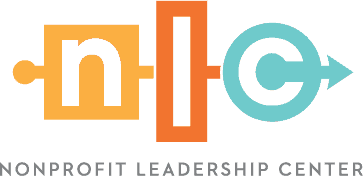Five leaders who serve as mentors to rising professionals share their top tips for how to be an effective mentor in the workplace.
When you think about what has had the greatest influence on your career and success, what comes to mind? For most people, it’s not what but who — a teacher or family member who believed in you even when you didn’t believe in yourself, a boss who showed you with their actions what true leadership looks like, a community leader who helped open doors and pass on wisdom that only comes from years of experience.
Countless studies confirm the power of having a career mentor, from increasing job satisfaction and productivity to feeling more confident and avoiding costly mistakes. But what defines an effective mentor and how can you serve as one to today’s emerging leaders?
We asked five professionals who serve as mentors in our Advancing Racial Equity on Nonprofit Boards Fellowship to share their top tips for how to be an effective mentor.
5 Tips to Be an Effective Mentor to Future Leaders
1. Be an accountability partner.

Mariana Bugallos-Muros, Senior Human Resources Executive
“To be an effective mentor, start by delving into what your mentee’s goals are, what they want and need out of the relationship and their passions. Then, hold them accountable. Do not do the work for them; rather help guide them along their journey.”2. Be proactive.

Jaree Ervin, Chief Development Officer, University Area CDC
“Be proactive in building relationships with your mentee, listen to understand and assist where appropriate to help the mentee reach milestones toward their goal.”
3. Make it about your mentee, not you.

Nate Penha, Retirement Plan Consultant, Mutual of America
“Always be adaptable. To be an effective mentor, we must be able to recognize our mentee’s strengths and help them continue to build on them rather than encouraging the mentee to adjust to our strengths.”
4. Take your role seriously and do a lot of listening.

Marva Stanford, Director of Leadership Development & Diversity, Equity and Inclusion, National ALS Association
“There is no manual when it comes to being a mentor. First, just be yourself. Start by listening and asking your mentee questions. Second, be consistent. Take the first step in reaching out and stay connected to continue the dialogue. Finally, when sharing the realities of what it takes to be successful, also be transparent about the grit and struggle often required to overcome obstacles. Ultimately, being an effective mentor is all about helping your mentee increase confidence, build awareness to navigate the workplace and have a confidential sounding board for ideas and challenges. Being a mentor is rewarding, but it’s a commitment. Take the role seriously. After all, you are helping develop our future leaders.”
5. Seek to understand your mentee on a deeper level.

Luis R. Visot, Board Member, Nonprofit Leadership Center
“When it comes to being an effective mentor, I’m guided by one simple thought from Stephen R. Covey: ‘Seek first to understand, then to be understood.’ It’s essential to invest a significant amount of your talent and time in learning and understanding your mentee’s identity, stories, experiences, beliefs and values. Gaining these insights is critical to develop and nurture a growth-enhancing relationship that is based upon mutual trust, respect and understanding. Viva la mentorship!”
Learn more about the Nonprofit Leadership Center’s Advancing Racial Equity on Nonprofit Boards Fellowship.
Enhance Your Leadership Skills
Join us for an upcoming nonprofit training class or certificate program to strengthen your leadership skills and organization. Find an upcoming learning experience on our event calendar.

